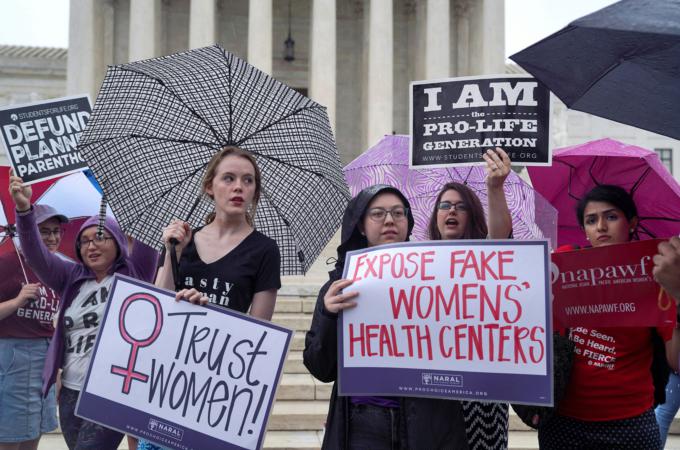Voting for pro-abortion candidate
Q. My family have all been cradle Catholics, but currently we are at odds. How can any Catholic vote for a Democrat who professes to be pro-abortion? How can Catholics look forward to someday meeting their Maker when they have voted into office those who will kill innocent human beings? (Pleasantville, Iowa)
Q. During a local retreat, I was given a guide for the sacrament of penance. Under the Fifth Commandment, it stated that voting for a pro-choice candidate is a mortal sin. Is this actually so? And what would happen if both candidates were pro-abortion? (Virginia Beach, Virginia)
A. I have addressed this issue before in this column. But the two questions above are samples of those that arrive regularly -- indicating to me that the topic is one of perennial concern.
Let's take the second inquiry first. It is simply wrong to say that a Catholic who votes for a pro-choice candidate is necessarily committing a mortal sin.
The guiding document on this is called "Forming Consciences for Faithful Citizenship," which the U.S. bishops refine and publish every four years prior to a presidential election and which addresses various moral issues that Catholics should consider before voting -- e.g., defending the sanctity of human life, racism, promoting religious freedom, defending marriage, feeding the hungry and housing the homeless, welcoming the immigrant and protecting the environment.
The document says clearly that a Catholic cannot vote for a candidate who favors a policy that promotes an intrinsically evil act such as abortion "if the voter's intent is to support that position" (No. 34). But the same document goes on to say, "There may be times when a Catholic who rejects a candidate's unacceptable position even on policies promoting an intrinsically evil act may reasonably decide to vote for that candidate for other morally grave reasons" (No. 35).
As to what to do when both candidates support abortion, the bishops' statement says that a voter may take the "extraordinary step" of choosing not to vote for any candidate -- or "after careful deliberation, may decide to vote for the candidate deemed less likely to advance such a morally flawed position and more likely to pursue other authentic human goods" (No. 36).
Q. When receiving holy Communion, some at our parish church stand and some kneel. Is there a "right way" to receive? (Atlanta)
A. It is left to national conferences of bishops to recommend the posture for receiving holy Communion. In the United States, that suggested posture is standing.
As the current General Instruction of the Roman Missal says, "The norm established for the dioceses of the United States of America is that holy Communion is to be received standing, unless an individual member of the faithful wishes to receive Communion while kneeling" (No. 160).
The answer to your question, then, is that there is no required "right way."
Between the editions of the general instruction published in 2003 and the current one (2011), there was an interesting modification in this regard. The 2003 version said, "Communicants should not be denied holy Communion because they kneel. Rather, such instances should be addressed pastorally, by providing the faithful with proper catechesis on the reasons for this norm."
The current version though, drops this note about "catechesis" and simply leaves individuals free to make the choice. My own pastoral inclination is to say, "Why should it matter?"
- Father Kenneth Doyle is a columnist for Catholic News Service



















